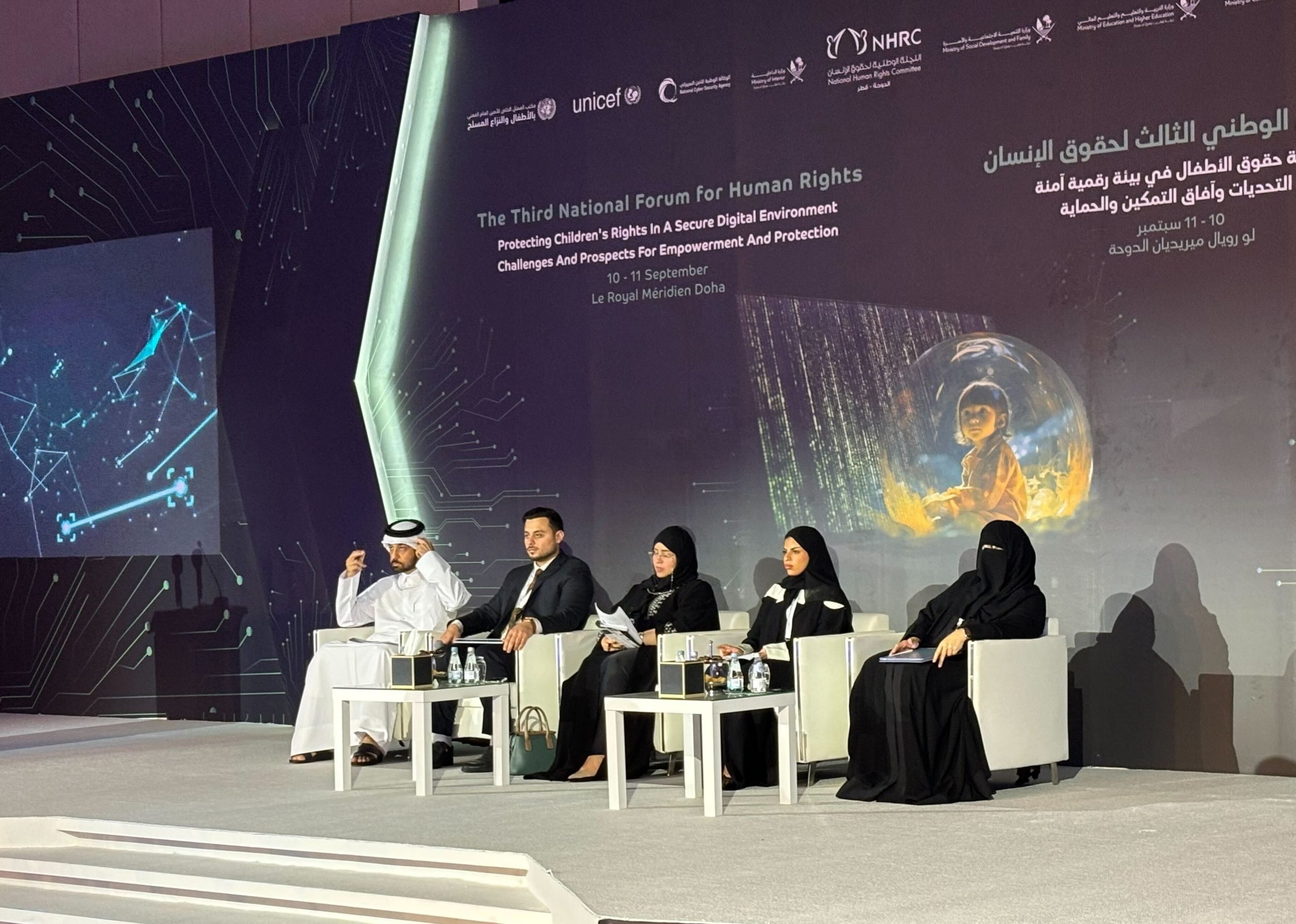The two-day event ended on Wednesday with expert suggestions on creating a national secure digital environment for students.
The third edition of Qatar’s National Forum for Human Rights (NHRC), held under the theme of protecting children’s rights in a safe digital environment, has concluded in Doha.
Sultan Hassan Al Jamali, the Secretary General of the National Human Rights Committee, ended the forum on Wednesday by highlighting the need to equip parents with the tools to protect children online.
A panel of rapporteurs also delivered final remarks and recommendations. Wadha Ali Al Marri, an e-learning consultant within the Ministry of Education, called for enhanced measures in educational settings to improve students’ ability to safely navigate digital spaces.
Al Marri’s comments follow her chairing the forum’s session on children’s participation in creating a safe and empowering digital environment. During this session, six students presented their research on various aspects of young people’s use of digital tools.
For example, the joint research by Al Maha Sultan Al Jamali and Khadija Ahmed Hussein investigated the impact of the dangers of excessive social media use among sixth grade students. This included tolls on their mental health and facing exploitation online.
The duo carried out their research in collaboration with Qatar’s Specialist Social Protection and Rehabilitation Center, otherwise known as Aman, which is a subsidiary of the Ministry of Social Development and Family (MSDF).
Based on their research, the two students recommended increased initiatives to raise awareness about the risks associated with excessive social media use.
Al-Reem Al Qahtani and Mauasa Bassam Nizami, two students who created an app to raise awareness about cyber attack risks, echoed this sentiment. They suggested that Qatari state bodies, such as the National Cyber Security Agency (NCSA), further develop their app prototype to educate the public and address digital crimes, including hacking, cyber blackmail, and fraud.
Hussein Hassan Al Harami, head of the studies and mentoring department at Qatar’s Behavioral Health Support Center, underscored the responsibilities of the family and society in protecting children’s rights online.
These efforts align with the Qatari Constitution’s commitment to protecting young people from corruption and exploitation. Additionally, the Cybercrime Prevention Law No. (14) of 2014 provides measures to safeguard children from online exploitation.
Speaking to Doha News on the forum’s sidelines, Virginia Gamba, the UN Special Representative of the Secretary-General for Children and Armed Conflict, said that she supports Qatar’s efforts in these regards.
National identity and the digital sphere
This year’s forum started on Tuesday and was opened by keynote speeches by Maryam bint Abdullah Al Attiyah, the Chairperson of the NHRC, Maryam bint Ali Al Misnad, the MSDF Minister, as well as representatives from the MoEHE, the Interior Ministry and the United Nations.
Al Attiyah said that as more and more young people use digital tools, more legislation is needed to protect them.
Attendees were also invited to tour a children-led art exhibition entitled ‘My Rights with My Colours,’ where Qatar’s schoolchildren used canvases to represent the risks of the misuse of digital tools.
During his research presentation on Wednesday about building a safe and sustainable digital society, Mohammed Abdullah Al Obaidli, a Qatari student, said that given the proliferation of digitisation, “we are citizens of a new world” .
Mohammed Saeed Al Balushi, a cultural heritage expert within the Ministry of Culture’s heritage and identity department, also emphasised the importance of using digital tools to promote citizenship and national identity during his presentation.
“At the Ministry of Culture, we are working to make everything digital,” he told Doha News. “This is the new way to save our heritage.”
“Our country’s heritage and preserving it is under the responsibility of the Culture Ministry. So, we’re always collaborating with other government ministries and affiliated entities to digitise our heritage,” he added.







